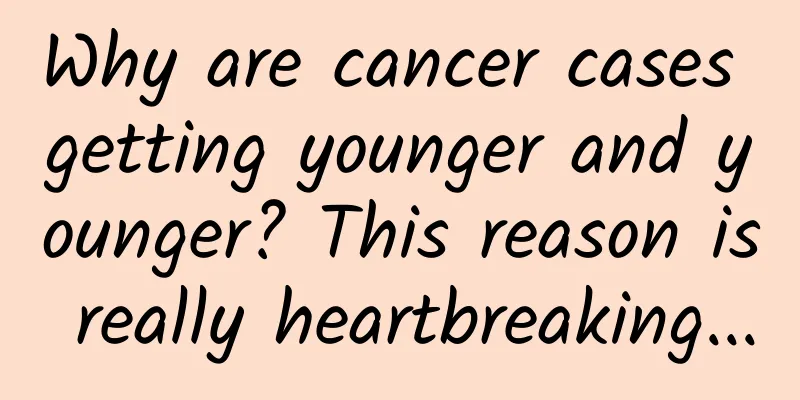Why are cancer cases getting younger and younger? This reason is really heartbreaking...

|
Compiled by: Gong Zixin In recent years Research data in related fields show Cancer is becoming younger Over the past 30 years Globally, new cancer cases among people under 50 have increased by 79%. Cancer deaths increased by 27.7% now A new study may explain Why cancer occurs more frequently at an earlier age Younger generations are aging faster, which could lead to an increased risk of cancer, according to a study released today at the annual meeting of the American Association for Cancer Research in San Diego. The researchers found that people born in 1965 or later were 17 percent more likely to experience accelerated aging compared with those born between 1950 and 1954. Among adults under 55, faster aging was associated with a higher risk of early-onset cancer, the findings showed. "Multiple cancer types are becoming increasingly common among young people around the world," said Ruiyi Tia, a doctoral student and researcher at Washington University School of Medicine in St. Louis. "Understanding the factors driving this increase will be key to improving cancer prevention or early detection in younger and future generations." For the study, the team analyzed blood data from nearly 149,000 people who participated in the UK Biobank. They used nine biomarkers found in the blood to calculate each person's biological age, or how old a person is based on the participant's physical condition. The researchers then compared this data with the participants' actual ages and any cancers they had ever developed, based on their dates of birth. The results of the study found Individuals with accelerated aging showed higher risks for early-onset lung cancer, early-onset gastrointestinal cancer, and early-onset uterine cancer, with increases of 42%, 22%, and 36%, respectively. In addition, among older adults, accelerated aging was associated with a 16% increased risk of late-onset gastrointestinal cancer and a 23% increased risk of late-onset uterine cancer. "By studying the relationship between accelerated aging and early-onset cancer risk, we are providing a new perspective on the common causes of early-onset cancer." The researchers added: "If confirmed, our findings suggest that interventions to slow biological aging may be a new avenue for cancer prevention, and that screening efforts tailored to younger people who show signs of accelerated aging may help detect cancer earlier." Next, the team will further investigate why younger people age faster and why this increases their risk of cancer. The cover image and images within this article are from the copyright gallery (or copyright holder). Any reproduction or use may lead to copyright disputes. |
<<: Why are you no longer hungry after being “overhungry”?
Recommend
Essential information for APP promotion and operation: the most comprehensive and complete online event planning guidance program!
Event operation is an explosive operation method ...
These electric supercars accelerate from 0 to 100 km/h in less than 4 seconds
Now, whether it is Japanese, German or American m...
How much does it cost to customize a catering WeChat mini program?
Q: How much does it cost to customize a catering ...
WebView core usage and best practices, avoid common pitfalls and optimization techniques
Introduction to WebView WebView is a control used...
I never thought that there is "third-hand smoke" after second-hand smoke? !
"Smoking is harmful to health" has beco...
A complete guide to information flow optimization. Are you still worried about conversion after reading this?
Conversion is the core of bidders, so what is the...
I drank milk after eating oranges and went to the emergency room in the middle of the night! The truth about why milk and oranges cannot be eaten together is this
Expert in this article: Dr. Tian Jing, attending ...
"Crayon Shin-chan" Movie Edition 28 Collection (1993-2020) HD Japanese Subtitles
Contains 28 Crayon Shin-chan theatrical animations...
Talking about Snakes in the Year of the Snake | “Human greed is like a snake swallowing an elephant”, why can a snake’s mouth open so wide?
The idiom "Human greed is like a snake swall...
LeTV Super TV MAX70 two-week experience
Advantages: 1. Large and clear screen; 2. Smooth o...
How to find your first operations job with no experience?
How to find an operations job without Internet ope...
The most comprehensive summary of the event promotion planning process
1. Ideas for event promotion planning 1. Five ele...
The scar heals and the pain is forgotten, but why does a scar remain after the wound heals?
I believe that everyone who has watched "Har...
Promotion analysis of the hottest marketing campaign!
Behind the popularity of grass-roots marketing is...
In the screen age, how to minimize the impact of electronic screens on children?
Source: Ni Xiaojiang & Jing'an CDC...









